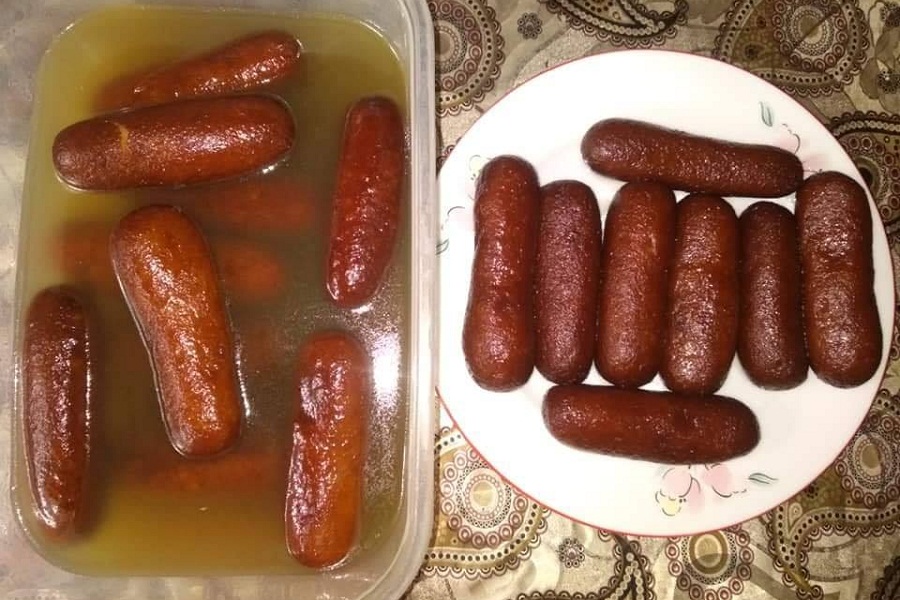
Published :
Updated :

Sirajganj is one of the districts situated in the historic Varendra region. Apart from being rich in folk culture, the district is also home to one of the finest sweets in Bengal, the Pantua.
The mighty Jamuna River flows through Sirajganj. Enayetpur is one of the quaint villages situated on the bank of the Jamuna, considered the birthplace of Pantua. The Bashtola Bazar of Enayetpur currently houses the sweet shop, passed on to future generations of sweet makers who came up with Pantua.
It is estimated that about a hundred years ago, a sweet maker (colloquially known as 'Moyra') named Ganesh Modak came up with the sweet when he fried mounds of cottage cheese (chana) by using ghee.
As no oil is used for frying the sweets, rather ghee is used, the flavour, as well as the smell of Pantua, are quite different from most other sweets, which began to become quite famous quite rapidly.
The mounds of chana used in Pantua are quite different from those used in making many other normal sweets. They are made into slightly taller shapes than the ones used in most other sweets. The sweet is rich in aroma and is a delight for every sweet connoisseur.
The Modak family has held onto their family business. Dhiren and Loknath Modak, sons of the late Ganesh Modak, the man who is thought to be the creator of Pantua, have a sweet shop named 'Bholanath Mishtanno Bhandar' in Enayetpur Bazar, where they sell sweets of almost 50 types along with Pantua.
Pantua, unlike many other sweets, is quite costly. The ingredients used in the sweets have to be fresh, and the process of making the sweets from start to finish is extremely arduous. After collecting milk, chana has to be made, which later has to be refined using a variety of procedures before going on to the next step of making mounds.
As the cost of sugar and milk has gone up, the price of the sweets has also had to be adjusted. Now a piece of Pantua of 80 grams in weight is sold for about Tk 35, which makes the price of a kilogram of Pantua Tk 400.
Pantua, like many other signature sweets of Bangladesh, has a humble and rustic origin and has become a part of our folklore and culture. However, unlike many other sweets that have gone extinct, Pantua is still thriving and will likely continue doing so in the coming days.
kabirrassiqaziz@gmail.com


 For all latest news, follow The Financial Express Google News channel.
For all latest news, follow The Financial Express Google News channel.